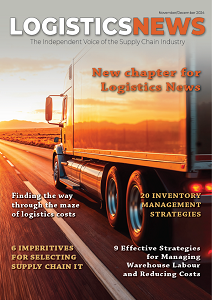In today’s highly competitive world, talent is leveraged. Therefore, it’s more important than ever for organisations to understand exactly what talent looks like beyond matching the particular requirements of a job function
Defining talent remains a challenge as some may argue that it all has to do with genetics, while others may say that it’s learned or a combination of both. A good place to start would be Buckingham and Coffman’s book entitled First Break All the Rules. They define talent as a ritual of thoughts, feelings, and behaviours that positively influence one’s perceptions and how they approach tasks and situations.
While research confirms that certain genes can influence a wide range of abilities that manifest as talent, the good news is that certain skills and knowledge can be leveraged into talent. Skill is defined as an expertise that can be acquired through learned practice and it differs from talent in that; talent is a natural aptitude or inner quality that emerges effortlessly (resources.workable.com, 2022). Buckingham and Coffman argue that it is possible to unleash and develop one’s skills and knowledge into talent through coaching and the development of learning cultures for organisations.
Employers of choice cultivate a culture that values their people across the full employee value chain and grooms talent. Identifying, attracting, and retaining talent requires companies to transition from being job providers to career enablers.
Identifying talent
The traditional career advancement path has become outdated and the traditional resume – a historical document of past performance and stability – has been upended and replaced with a record of demonstrated skills, attitudes, and aptitudes. Career progression is no longer a ladder, but a maze that demands sideways moves, taking on new roles in different departments, or demonstrating the ability to deliver (right.com, 2022). Although different organisations may define talent differently, it can be argued that a strong indicator of talent is an individual’s capacity to leverage their emotional intelligence (thoughts, feeling and behaviours) to naturally or effortlessly navigate this maze. Creating a career plan with cross-functional career moves to facilitate greater business acumen and width of experience is critical to retain and groom talent.
Retaining talent (coaching culture)
According to a survey by Lynda.com, about 56 percent of organisations struggle to keep high-potential and top-performing employees. Winning over and retaining the next generation of talent requires organisations to shift their focus towards “empowering employees with career growth opportunities in an inspiring company culture” (S. Barry, 2022). It all begins with driving engagement to uncover skill gaps and cultivating a transformative culture rooted in learning rather than just training. This is because training is business-centric, transactional, and more focused on conformity and control, while learning is individualistic, experiential, learner-centric, and transformational.
Attracting talent (people value chain)
Attracting and retaining top talent is crucial to any organisation’s success. It has been forecast that more people than ever before will consider switching jobs in the coming years. As employee motivations change, competitive compensation packages are no longer enough to entice top talent (A. Danise, 2022). Apart from a compelling job description or benefits, an organisation’s culture and how it connects employees with their deepest professional aspirations is critical. A learning culture rooted in coaching is an indispensable tool in empowering employees to transform themselves and can not only boost engagement but also help the organisation build its talent brand; a great resource for attracting even more talent.
Changing labour markets and the high demand for skills have resulted in many talented workers seeking personalised employee experiences that meet their needs at every stage of their professional journeys. Employers benefit from moving from sourcing talent to building talent through a career management strategy and coaching culture.

.jpg)


